On the national anthem of Bangladesh: An apologetic discourse

Ireland's national anthem "The Soldier's Song" was not written in Irish, but in English. This English version is still the official national anthem of Ireland even though Irish is the national language of the country. On the other hand, though the majority of the people in Wales speak English, the national anthem of Wales, "Hen Wlad Fy Nhadau" is sung in the Welsh language. Our neighbour, India's national anthem, "Jana Gana Mana" is actually a translation from Bangla.
These contrasting and alternative structures, styles, and properties of national anthems raise some questions. Are there any official rules for national anthems? Does a song have to match a certain criterion to be the national anthem of a country? Probably not.
Almost all national anthems in the world are unique and have their own merits. No two national anthems are entirely the same. Expecting a standard or setting a set of rules for national anthems is not practical because the national anthem is supposed to be created from within. Its inception should be from a void and it should gradually grow into a transcendental form that fills the heart with passion for the native land. It's not possible to create such an emotion-inducing oeuvre maintaining any rubrics. This is the reason every national anthem follows their own path and none fits within any set of strict features.
In fact, being individualistic and unique in all aspects should be an intrinsic part of the national anthem as its aim is to reflect the experience of a particular motherland. Thus, expecting the national anthem to have or not have certain features or be of a specific quality is against this very primary essence of the idea of a "national anthem".
The recent attack on "Amar Shonar Bangla" stems from this type of attempt to categorise the national anthem, leading to further allegations against it. From the issue of having borrowed the melody for the national anthem from another song, to not acknowledging the nation in the lyrics, to being composed for a different context, to not talking about national history to attacking the author's identity, a wide array of factors is heavily questioned. However, not only are these questions baseless, the allegations are without any reliable evidence as well. Yes, it's permissible to question everything including the national anthem. But this question should not be an attempt to establish a specific set of rules or categories because the national anthem simply does not work that way.
These questions and allegations are actually not new. Rabindranath always had a group attacking him and his work for various reasons on various occasions. Recently, the issue resurfaced and that made it important to address each and every question and allegation raised to pave the path toward further discourses that hopefully won't be absurd and will have the potential to lead to productive discussions.
The case of stolen melody: Gagan Harkara and Rabindranath
The issue of 'stolen' melody sounds like a good place to start. Everyone knows by now that the original melody of "Amar Shonar Bangla" was taken from Gagan Harkara or Gaganchandra Dam's "Ami Kothay Pabo Taare". It is commonly pointed out that Rabindranath "stole" the melody of the song while avoiding the question how we came to know about Gaganchandra in the first place. Rabindranath himself was the first person to publish Harkara's "Ami Kothay Pabo Taare" in 1915 (1322 Bangla year) in Rabindranath's own magazine, Prabashi.
We know about Gagan Harkara because not only did Rabindranath credit him, but he also showed appreciation for the talents of Bauls like Gaganchandra. If he had the intention of "stealing" the melody, he certainly would not have brought Bauls like Gaganchranda into the limelight. If you look into Gaganchandra's life, you'll discover that he was a postman in Shelaidaha, Kustia where Rabindranath was the owner of his family estate. Gaganchandra used to deliver posts to Rabindranath and that's how they knew each other. It was during those visits that Rabindranath listened to Gagan singing his Baul songs and came to know the melody of "Ami Kothay Pabo Tare". Rabindranath specifically mentions this song in the "Ashirbaad" (Blessings) section of the 1st Volume of Muhammad Monsooruddin's 13-volume Bangla folk song collection, titled Haramoni. Here, Rabindranath wrote,
"I remember when I was young, a Baul from Shelaidaha played ektara and Sang,
'Where shall I meet him,
the Man of my Heart?
He is lost to me and I seek him
Wandering from land to land.'"
This translation of "Ami Kothay Pabo Taare" was written by Rabindranath himself in his essay, "An Indian Folk Religion". He directly mentions Gaganchandra, saying, "The name of the poet who wrote this song was Gagan. He was almost illiterate; and the ideas he received from his Baul teacher found no distraction from the self-consciousness of the modern age. He was a village postman…"
Rabindranath's appreciation for Gaganchandra's Baul song is present in that very essay. He further wrote, "The first Baul song, which I chanced to hear with any attention, profoundly stirred my mind. Its words are so simple that it makes me hesitate to render them in a foreign tongue, and set them forward for critical observation. Besides, the best part of a song is missed when the tune is absent; for thereby its movement and its colour are lost, and it becomes like a butterfly whose wings have been plucked." This mention of the tune makes his fascination with the melody of the song apparent as well.
In addition, it was never unknown that Rabindranath took the melody of "Amar Shonar Bangla" from "Ami Kothay Pabo Taare". Sattendronath Ray, for example, wrote about its melody, saying "Rabindranath's new song 'Amar sonar bangla' was sung in the melody of Baul," referring to Gaganchranda. Rabindranath's niece, Sarala Devi, in her autobiography Jibaner Jharapata, too wrote that the song "Amar shonar bangla" got its melody from Baul songs. Shanti Deb Ghosh also wrote about it in Rabindrashangeet in the following way,
"He [Rabindranath] composed the song 'Amar Shonar Bangla Ami Tomay Bhalobashi' maintaining similarity with the song 'Ami kothay pabo taare'".
All this information indicates that the issue with the melody of "Amar Sonar Bangla" was never really a secret and was always popularly known and had wide acceptance. Everyone, including Rabindranath aficionados and his peers, such as Dwijendralal Ray, knew the source of the song's melody and still respected and appreciated both songs for their own merits.
In case you didn't know, it's not uncommon for a national anthem to have the melody taken from a different song. For instance, the national anthem of the USA, "The Star-Spangled Banner" takes its melody from a popular British drinking song called "To Anacreon in Heaven".
Not giving credit intentionally is one thing, while using a melody and introducing its source to the masses is completely different. The practice of borrowing is not uncommon in literature. In fact, literature embraces this practice and terms it 'allusion'.
For those still not convinced, the notation of "Amar Shonar Bangla" was actually composed by Indira Devi Chaudhurani and not Rabindranath. Sarala Devi collected the tune "Ami Kothay Pabo Taare" and Indira Devi Chaudhurani placed it with the lyrics of "Amar Sonar Bangla", likely because Rabindranath appreciated the notation. Similarly, the notation of many of Rabindranath's songs are composed or placed by others and not by Rabindranath himself. So, if you still have to place blame, it's Indira Devi Chaudhurani you are attacking and not Rabindranath.
No acknowledgement of Bangladesh: Denying the nation in the national anthem?
Another popular argument many make is that the song "Amar Shonar Bangla" does not acknowledge Bangladesh. Well, how would the song mention Bangladesh since Bangladesh itself was born in 1971, 30 years after Rabindranath's death? The argument that stands is how can a person who does not even acknowledge Bangladesh write a song that becomes the national anthem of Bangladesh?
However, a quick survey through Rabindranath's work reveals that he actually directly mentions "Bangladesh" in many of his writings even though no such thing as "Bangladesh" officially existed back then. In fact, Soumitra Sekhar argues that Rabindranath was one of the very first to use the name "Bangladesh" as it is used today. Before him, authors like Bankim Chandra Chatterjee, Ishwar Chandra Vidyasagar, Peary Chand Mitra wrote "Bangadesh" to refer to Bangladesh, a tradition from which Rabindranath deviated.
Rabindranath mentions "Bangladesh" directly in at least 32 of his literary and non-literary creations. Thus, the claim that Rabindranath didn't acknowledge Bangladesh is not true. Even though the Bangladesh we know did not exist during his time, it was Rabindranath who wrote on, wrote about, and mentioned Bangladesh in his creations.
However, it's true that our national anthem does not mention the name "Bangladesh" even once. But it is not uncommon for a national anthem to have no mention of the name of the country. Not having such mention does not make an anthem not an anthem. The example of the USA's national anthem becomes relevant here yet again, as "The Star-Spangled Banner" does not mention the USA in any of its four verses. Similarly, the national anthem of the UK, "God Save the King", does not have any mention of its nation either. Mentioning the nation or the country by name is not actually necessary in the context of a national anthem as inducing the sentiment of belongingness within the land is the central notion and purpose of the song.
Not having any mention of the country is actually a bright side of the song. The structure, content, and style of "Amar Shonar Bangla" is composed in a way that prioritises solidarity over any sort of differentiating mechanism. Nationalistic sentiment itself can be problematic as it has the potential to influence distinction based on geographical and artificial borders. Cultural commonness should be the basis of solidarity rather than the man-made borders that divide countries. "Amar Sonar Bangla" prioritises this solidarity of cultural commonness by emphasising on "Bangla", and dismissing all sorts of discriminatory elements. The song overall promotes appreciation and glorification of the common culture of the region, not heeding to nationalistic distinction instigated by geographical borders. More on this will be discussed later on.
As already mentioned, there are many national anthems that are not directly about their own nation. The national anthem of the Philippines, "Lupang Hinirang" does not mention their own country in any part of the song. Another close example can be "Advance Australia Fair", the national anthem of Australia where Peter Dodds McCormick, though he mentions "Australia", does not really talk about the Australia we know of today since he wrote the song long before the formation of Australia as a nation. This all means the presence or absence of the name of the nation within the national anthem does not affect the essence of the song.
This dimension of our national anthem solidifies the fact that what the song is written for, its target subject matter, does not alter its sentiment of solidarity and appreciation of the entirety of Bangla culture. A song composed for the entire Bengal region still holds on to the native sentiment of our country all the same.
Written for Banga-Bhanga, chosen for Bangladesh: How important is historical context?
The issue of context further problematises the scenario. It raises the question: how can a song written for a different purpose be the national anthem of a country? As it's already known, "Amar Shonar Bangla" was originally written in response to the "Banga-Bhanga", or partition of Bengal, in 1905. Although this song does not mention "Bangladesh", another song titled "Aji Bangladesher Hridoy Hote" mentions the name of the country not only in the title, but in the lyrics as well. This song too was written in response to "Banga-Bhanga" in 1905.
However, it is the context of the song that is questioned here. In the case of such songs and literary creations that are intended to induce a sense of value, respect, and appreciation, how much does context really matter? Sentiment precedes context in this case as it is sentiment that makes such songs or literary creations timeless; on the other hand, considering context would not have a similar effect because contextualisation makes something time bound to the context.
This is one of the reasons many national anthems of the world do not take the original context of the song into account. The national anthem of China can be a good example here. "March of the Volunteers", the national anthem of China, was originally written in 1934 by Tain Han for the film Children of Troubled Times. Though this movie came out in 1934, along with the song, the People's Republic of China was established 15 years later in 1949. In other words, not only was the song written long before the prospect of independence, it was composed for a film meant to be consumed by the masses.
National history within a national anthem: A necessity or a problem?
The matter of context leads to the issue with history. National history is undoubtedly an intrinsic part of a nation and it deserves utmost respect from all generations of a nation. And a national anthem is supposed to be about the most essential properties of a nation. However, it's not necessary for history to be a part of the national anthem.
Again, a national anthem is about inspiring respect, solidarity, pride, and appreciation for a nation. While having national history can promote these aspects, it also has its problems.
The central problem of making a national anthem about national history is the concept of national history itself. Everything that happens before and after the liberation or establishment of a nation is a part of the national history. There's no denying that the Liberation War of 1971 gave birth to "Bangladesh" as we know it. This war is an essential and inseparable part of Bangladesh, but so are the wars that preceded and followed it. There are revolutions other than that of 1971 that contributed to the constitution of the nation. Just like events prior to 1971, like the Language Movement of 1952, is a part of national history, the revolutions following 1971, such as that of 1996 and 2024, are unignorable parts of national history as well. Practically it's impossible to hold every bit of national history within a national anthem as history is subject to continuous change. If national history is that important, then should one change the national anthem every time there's a revolution to fit that new addition of national history within the anthem?
If national history is an essential part of the national anthem, yet some history is not included within the national anthem because of the time the events took place, it creates more problems. Prioritising one revolution over another while all are significant in the construction of a nation gives the impression of othering or devaluing one revolution in relation to another. It gives off the vibe that the movement, war, or event that is a part of the national anthem is more significant than the ones that are not. But in reality, it is the collection of separate events and movements that puts a nation together as a whole.
Thus, placing the materiality of wars or specific events in the national anthem problematises its central aspect, which was meant to inspire overall pride rather than pride centred around a particular event. This can be counted as the reason it's practical to have a national anthem that emphasises the collective sentiment of the land rather than history. Nationalistic sentimentality for the nation was in fact an inherent part of the motivation behind the revolutions of 1952, 1971, 1996, 2024, and others. It shows that sentimentality has always been an overpowering property of the essence of Bangladesh. Sentimentality is the dimension that holistically covers the entirety of historical progression without leaving out aspects other than that of wars and revolutions.
Rabindranath chose sentimentality over the events of historical progression in "Amar Shonar Bangla" because he perceived the region of Bengal being motivated not by materiality, not by sense of anything violent, but by pure love, respect, and intimate solidarity for each other despite any kind of differences.
This perspective is likely the reason many national anthems of the word do not keep accounts of national history in their national anthem. "Aegukga", the Korean national anthem, and "Lupang Hinirang", the Philippine national anthem, are two examples of such national anthems that prefer to inspire appreciation through subjects other than national history.
This is the first part of a two-part series, serialised here on Star Literature.
Abdullah Rayhan is studying English Literature at Jahangirnagar University.

 For all latest news, follow The Daily Star's Google News channel.
For all latest news, follow The Daily Star's Google News channel. 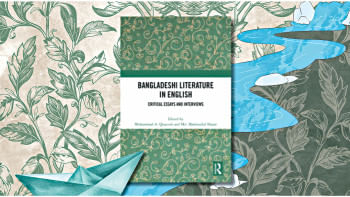
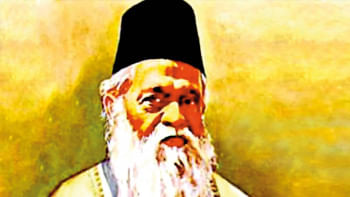

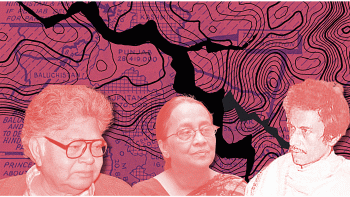
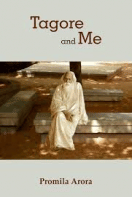






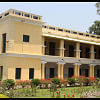


Comments